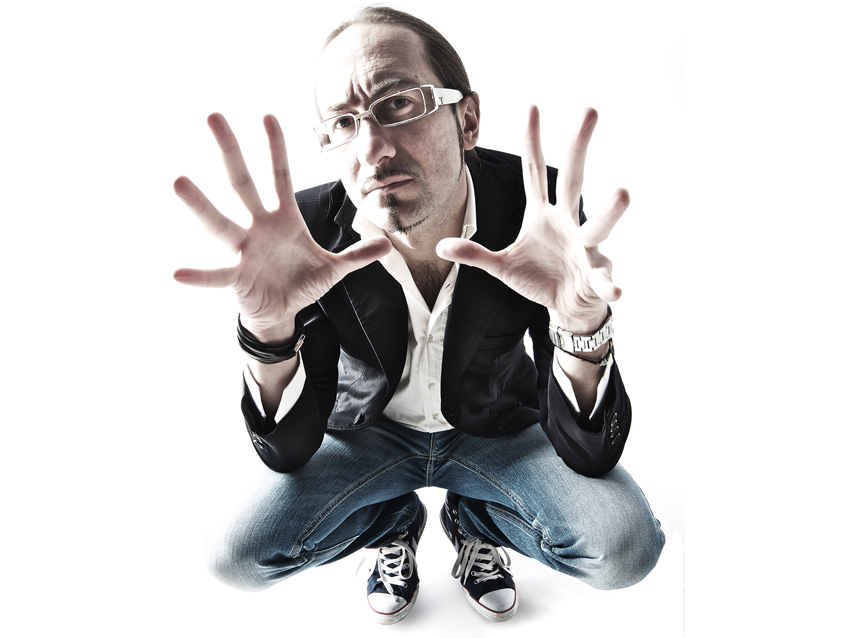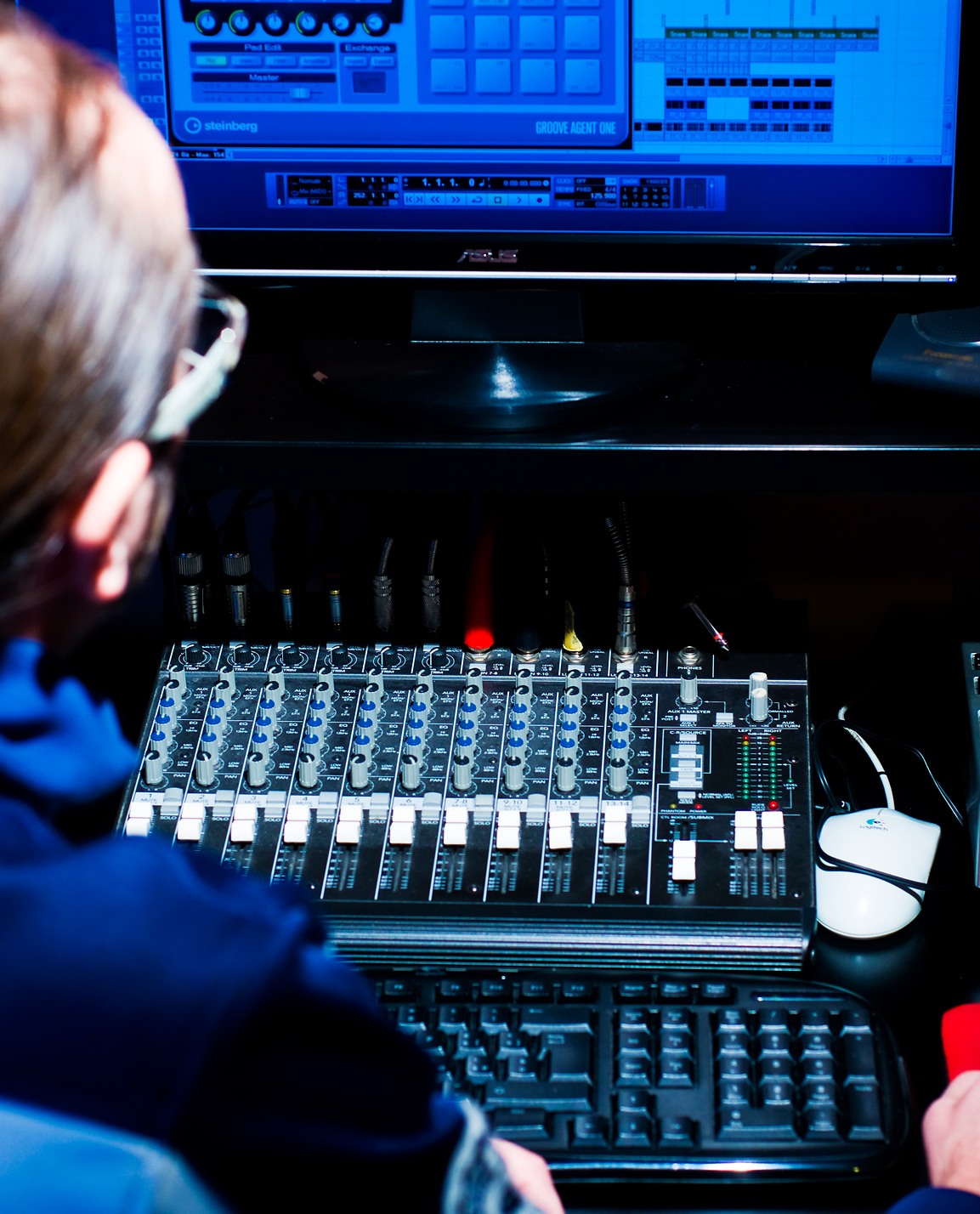Interview: Marco Lys on production, gear and breaking through

With over 20 years in the business, Marco Lys has produced and remixed for some of the worlds most respects dance labels. Collaborations with Chris Lake, MIchael Gray,My Digital Enemy and Filo & Peri to name just a few, have seen the release of floor-filling club singles and DJ bookings at the worlds most prestigious clubs.
We caught up with Lys to find out about how he produces his tracks and his thoughts on making a career out of dance music.
Tell us a bit about how you produce? Are you one of those guys cooped up alone in the spare bedroom or are you a collaborator?
"I mostly produce on Cubase and I've used it since 1991 when it was on Atari 1040 ST, which is still proudly somewhere in my studio! I also sometimes use Ableton and Logic.
"In the last few years it seems like you have to be very commercial or very underground to get credibility..."
"I'm used to working both ways but collaborations are more interesting. Working alone is good when I want to concentrate on details, whilecollaboration is a good alchemy, the result isalways unexpected! Working with producers like Chris Lake, Alex Kenji, Michael Gray, Prok & Fitch, Paul Strive and Nelski is very inspiring and funny too, we have the opportunities to share tricks and ideas, it really works!"
How does a track usually start, what generally inspires the music making process? A Sample? A new bit of gear or something else?
"It always starts from the kick. Then it depends; sometimes I have a sample I want to use, sometimes a new inspiring sound or a new soft-synth to test."
What are your favorite tools in the studio?
"I can't work without my favourite tool: Penguin Audio Meter, it's the best spectrum analyzer I know. It's a really shame it's only for PC and doesn't work on Win7. In fact, this is the main reason I haven't moved from Cubase 5 to 6 yet."
What are your thoughts on the current hole appearing in the middle of dance music, it seems to us like you're either Guetta or SHM or you're on the underground, almost. The mid-level DJ seems to not exist anymore?
"I totally agree with you. In the last few years it seems like you have to be very commercial or very underground to get credibility to a relative audience. Personally I consider myself on the second one side even if I don't like being too much aimed at the underground."
Want all the hottest music and gear news, reviews, deals, features and more, direct to your inbox? Sign up here.
Have you changed the way you make music dramatically because of technology?
"Well, in a certain way it's like I got back to my roots when I was used to produce my demos with an Amiga 500 and all the sounds were in the box. Anyway the answer is yes.
"There is some hardware gear in my studio I'm not using anymore, I don't remember when was the last time I've turned my Akai sampler on! About 10 years ago, I used to send some groups to different soundcard outputs and mix them on my Mackie 1402, using hardware effects, expanders and so on.

"Now every sound is coming out from my computer, the plug-ins are so good that I don't need external stuff, except for some cool strings or pads I still record from my Roland JV1010, the mixing process is all internal.
"Mainstream music is getting harder and more tech-orientated."
"Another thing I've changed is the sound design; when I was just having 1 or 2 synths I was used to squeeze them creating new sounds, I could spend days experimenting with them. Nowadays there is so much stuff that if you don't like a sound you just have to move to another preset or to different VST and move a few knobs to get that sound. It's good but for some reason, I miss the old way."
What about DJing, what gear do you take to the booth? What's on your tech rider?
"I'm quite a classic DJ at the moment, that's maybe because I come from the vinyl era, I still haven't moved to laptop or USB sticks, maybe soon on that last one. I still prefer to burn CDs and print the labels, it's a more visual way to work for me. My tech rider is CDJ 2000s and Pioneer DJM 900 mixer; it's the best combo for me."
Ever had any embarrassing technical failures? Tell us about how you solved them!
"Luckily I haven't had so many! I think the classic one is to press 'cue' on the running CDJ and after a long time it finally happened at my gig at SET in Miami, the funny thing it happened few days after an interview asking me about the same thing! I've solved pressing cue again like a 1/8 drum roll at same tempo of the other track tempo I was listening on the headphones and then drop the new one, not a big mix, but I got out well from the mistake!"
How do you find new music now, is there more pressure to be different because there's so much access to new music online?
"The overall production quality is better than 10 or more years ago, software is better, YouTube and dedicated forums give you easy access to tutorials and so on. It's easy to learn how to use a compressor or an EQ now.
"There's loads of new music everyday and now a track becomes old after only few weeks. This means that like never before you need to produce stand-out music if you don't want to get lost in the sea of other releases."
Where do you see the future of club music going? It seems like the mainstream is getting tougher and tougher sonically.
"Good question; and I think you are right, mainstream music is getting harder and more tech-orientated."
What does the rest of 2012 hold for you? What do you hope to achieve this year? Is it possible to be a career focused DJ or do you have to take things as they come?
"I will spend this year producing new tracks alone and doing new collaborations, I have to work hard to build up my profile to achieve an even bigger audience. It's very important to get new gigs to do this.
"I think it's possible to be a career focused DJ but you have to take things as they come at the same time or it could be very frustrating because of the sacrifices you have to do, especially in the early stages."
Words of advice for anyone trying to break as a DJ and producer? How do you set yourself apart?
"First of all listen as much music as you can, in every style. It's very important to get inspiration. Be very curious on how things work, learn production techniques, music theory and so on. Just experiment! Most important thing is to get your own sound - hopefully a cool one!"
Catch up with what Marco Lys is up to on his Facebook and Twitter pages